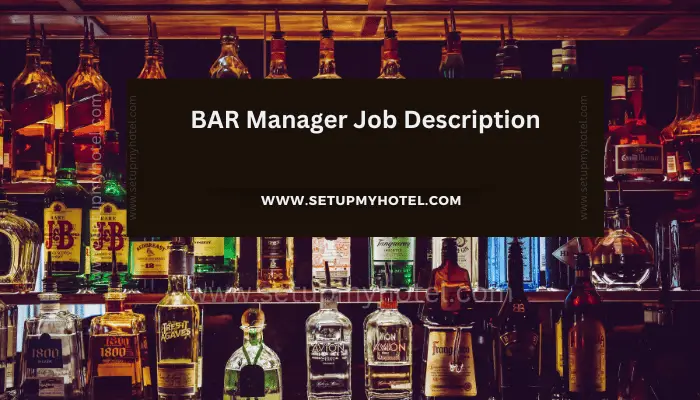The Main Factors Of Restaurant Revenue Management
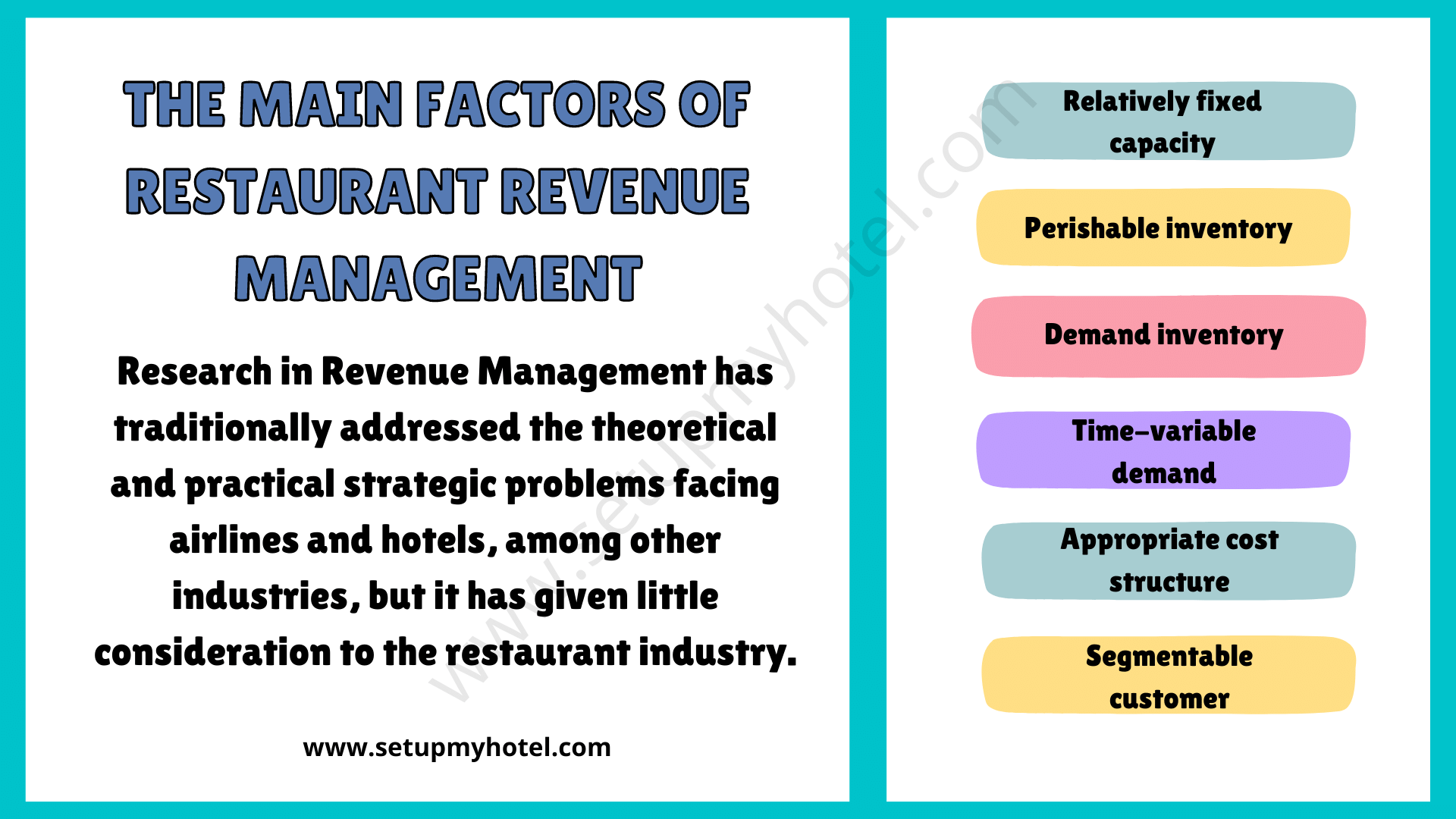
The Main Factors Of Restaurant Revenue Management Restaurant revenue management involves a strategic approach to pricing, marketing, and operations to ...
Read more
Selection of Cleaning Equipment for Housekeeping Department

What to look for when selecting cleaning equipment for housekeeping? The housekeeping department plays a crucial role in ensuring that ...
Read more
Assistant General Manager / Asst. Hotel Manager Job Description

Job Description, Duties, Interview Questions and Salary For Assistant General Manager in Hotels The role of an Assistant General Manager ...
Read more
General Manager / Hotel Manager Job Description

Job Description, Duties, Interview Questions and Salary For Hotel General Manager A General Manager or Hotel Manager is responsible for ...
Read more
Banquet Event Staffing Guide Format Sample
Banquet Event Staffing Guide Format Sample Banquet Managers should schedule the proper number of staff members and types of staff ...
Read more
Room Service / In Room Dining Manager – Job Description
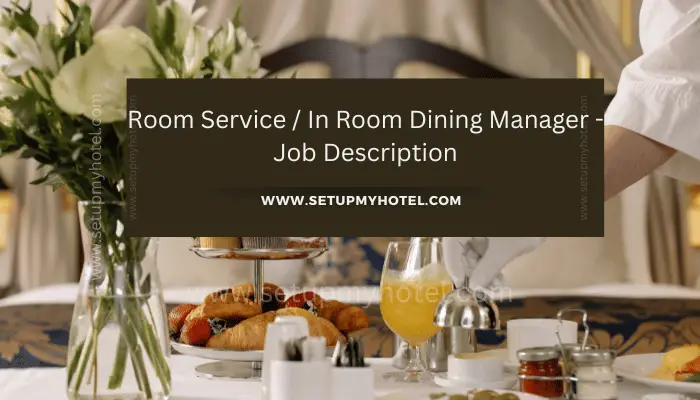
Job Description, Duties, Interview Questions and Salary for Room Service / In-Room Dining Manager The Room Service / In Room ...
Read more
Restaurant Manager / Asst. Restaurant Manager Job Description
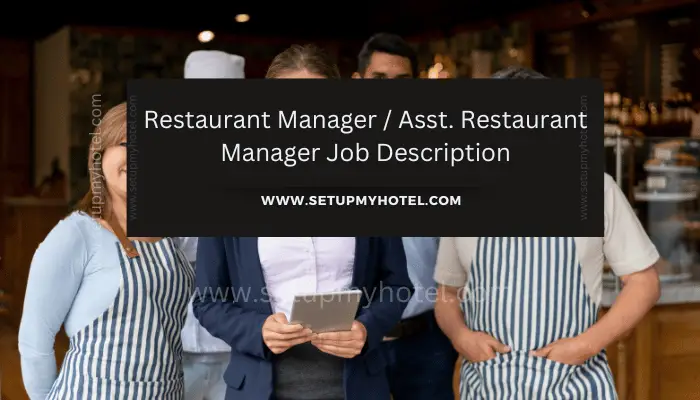
Job Description, Duties, Interview Questions and Salary for Restaurant Manager / Asst. Restaurant Manager The role of a restaurant manager ...
Read more
Pre Opening – Hotel Budget Format
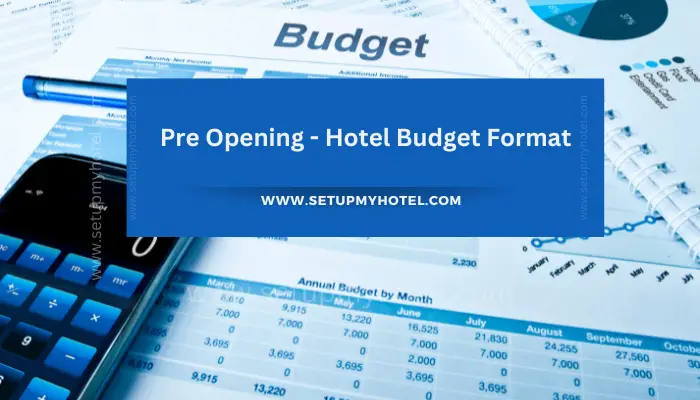
Hotel Pre-Opening Budget Sample Format Hospitality facilities are associated with several types of costs. They must be developed and constructed. ...
Read more
Welcome Letter For Hotel Guests – Download Sample Formats
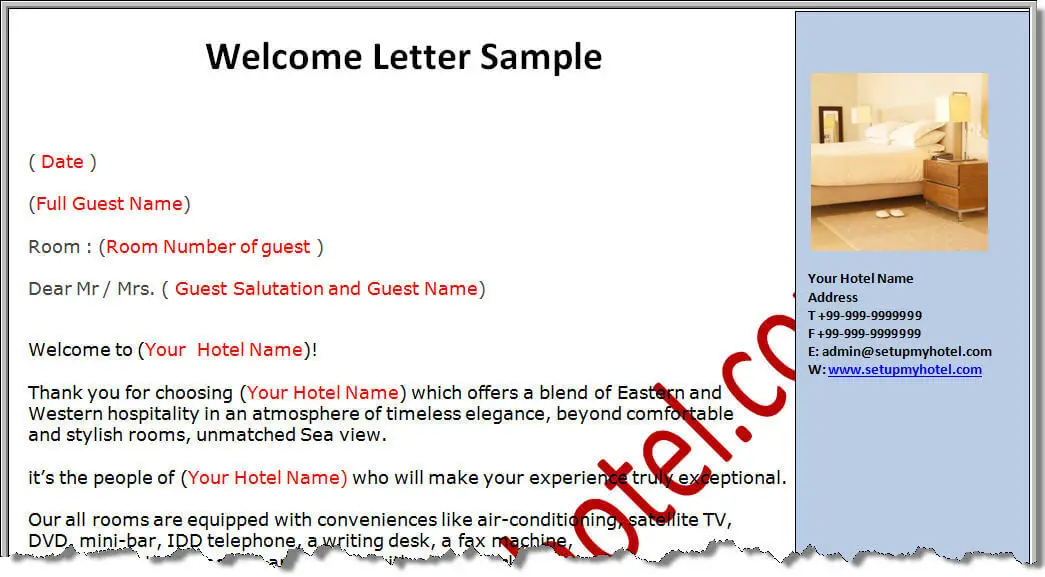
Welcome letter format used in hotels A personalized welcome letter is printed and kept in the guest room to greet ...
Read more
